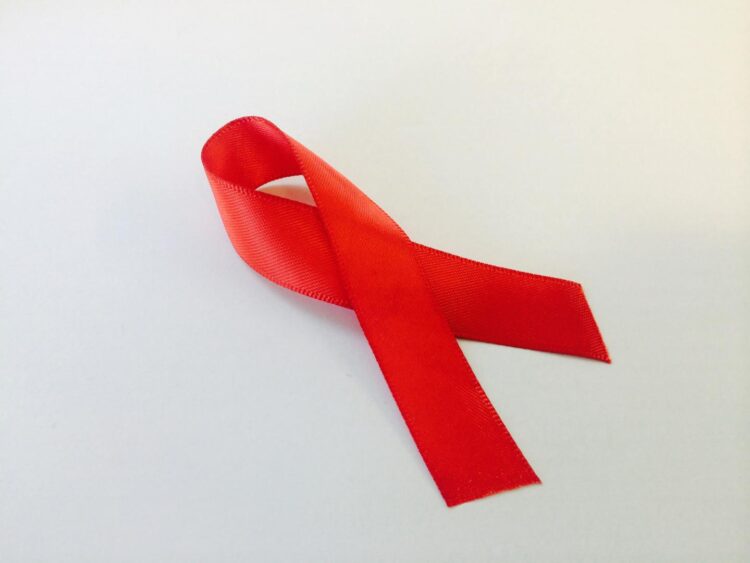Multicenter HOPE Act study expands pool of available kidneys

Credit: NIAID
WHAT:
Kidney transplantation from deceased donors with HIV to people living with both HIV and end-stage kidney disease is feasible and safe, investigators supported by the National Institutes of Health have found. Their study demonstrates that the pool of available kidneys for people with HIV can be expanded by including donors with HIV, making more kidneys available for all who are awaiting a transplant.
The new findings build on research from 2019, when scientists from the University of Cape Town and NIH reported that people living with HIV who received kidney transplants from deceased donors with HIV had high overall survival and kidney graft survival after five years.
People living with HIV have a growing prevalence of end-stage kidney disease and are nearly three times more likely to die while on kidney dialysis than people without HIV. Kidney transplantation extends the lives of people with HIV and end-stage kidney disease, but these individuals face a shortage of donors and limited access to donor kidneys. The HIV Organ Policy Equity (HOPE) Act, passed by the U.S. Congress and signed into law in 2013, allows organ transplants from donors with HIV to recipients with HIV in approved research studies in the United States. Experts concurred that kidney transplantation between people with HIV would expand the pool of available organs and save lives. Consequently, investigators sought to explore the safety of this innovative transplantation practice.
The multicenter study was conducted by the HOPE in Action team led by Christine M. Durand, M.D., associate professor of medicine, and Dorry Segev, M.D., professor of surgery at Johns Hopkins University in Baltimore. NIH’s National Institute of Allergy and Infectious Diseases (NIAID) funded the study with additional support from the National Cancer Institute, also part of NIH.
Between March 2016 and July 2019, investigators at 14 clinical research sites enrolled 75 adults with end-stage kidney disease and HIV whose virus was reliably suppressed by anti-HIV therapy. Twenty-five participants received kidney transplants from deceased donors with HIV, and 50 participants received kidney transplants from deceased donors without HIV. The latter group included 22 donors who had false-positive HIV tests, another new organ source that has been an unexpected benefit of the HOPE Act.
All participants survived transplantation at a median follow-up of 1.4 years for recipients of HIV-positive kidneys and 1.8 years for recipients of HIV-negative kidneys. One year after transplantation, overall graft survival was excellent and comparable between recipients of HIV-positive kidneys (91%) and HIV-negative kidneys (92%). In addition, there were no differences in the rates of infections requiring hospitalization, serious adverse events (1.1 per person year) or HIV-related complications, which were rare.
Dr. Durand also is leading the HOPE in Action Multicenter Kidney Study, a large-scale, NIAID-sponsored clinical trial to further study the safety of kidney transplantation between people with HIV.
###
ARTICLE:
CM Durand, et al. A prospective multicenter pilot study of HIV-positive deceased donor to HIV-positive recipient kidney transplantation: HOPE in Action. American Journal of Transplantation DOI: 10.1111/ajt.16205 (2020).
WHO:
Available to comment on the study findings are NIAID Director Anthony S. Fauci, M.D., and Jonah Odim, M.D., Ph.D., clinical transplantation section chief in the NIAID Division of Allergy, Immunology and Transplantation.
CONTACT:
To schedule interviews, please contact Laura Leifman, (301) 402-1663, [email protected].
NIAID conducts and supports research–at NIH, throughout the United States, and worldwide–to study the causes of infectious and immune-mediated diseases, and to develop better means of preventing, diagnosing and treating these illnesses. News releases, fact sheets and other NIAID-related materials are available on the NIAID website.
About the National Institutes of Health (NIH): NIH, the nation’s medical research agency, includes 27 Institutes and Centers and is a component of the U.S. Department of Health and Human Services. NIH is the primary federal agency conducting and supporting basic, clinical, and translational medical research, and is investigating the causes, treatments, and cures for both common and rare diseases. For more information about NIH and its programs, visit http://www.
Media Contact
Laura S. Leifman
[email protected]
Related Journal Article
http://dx.





